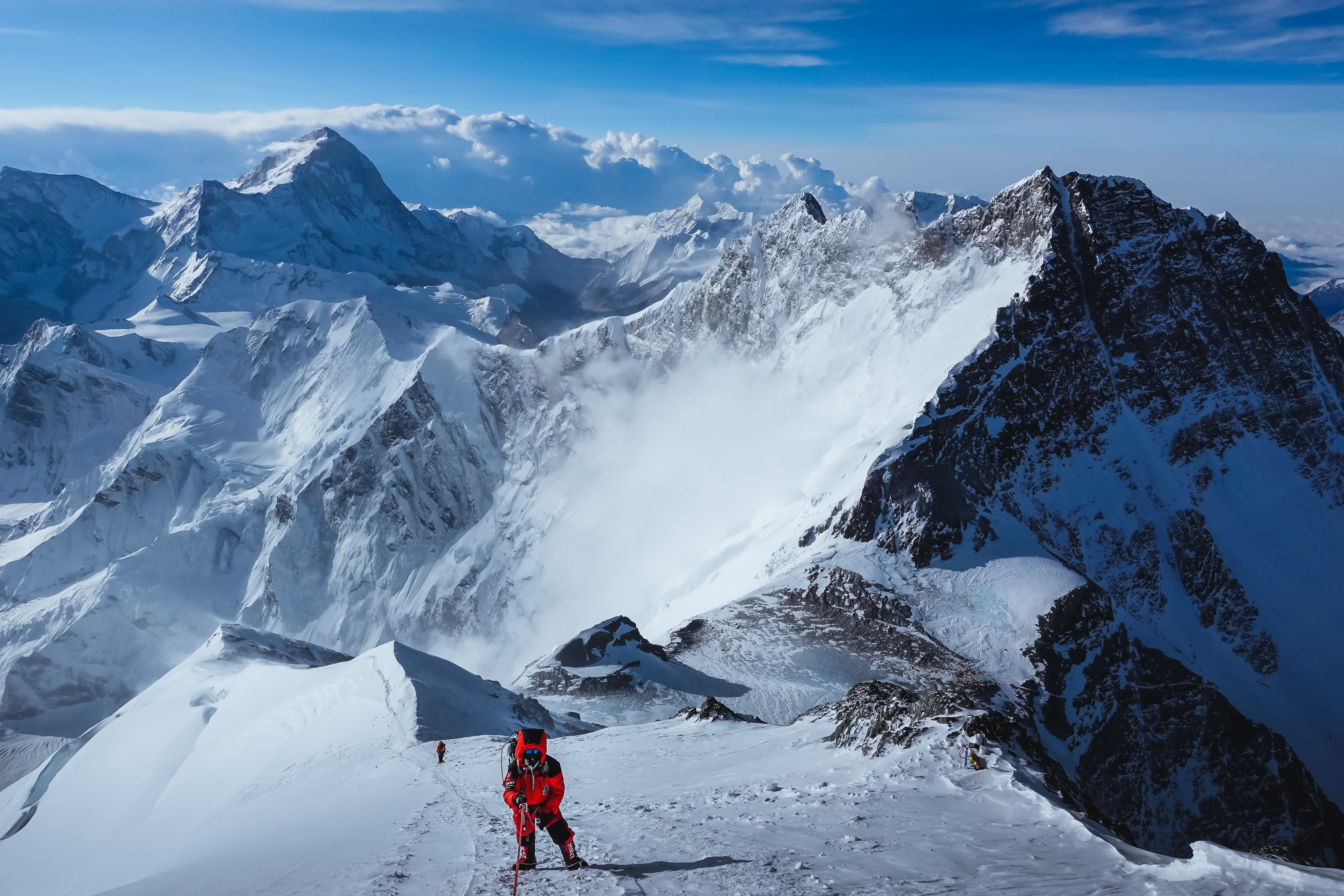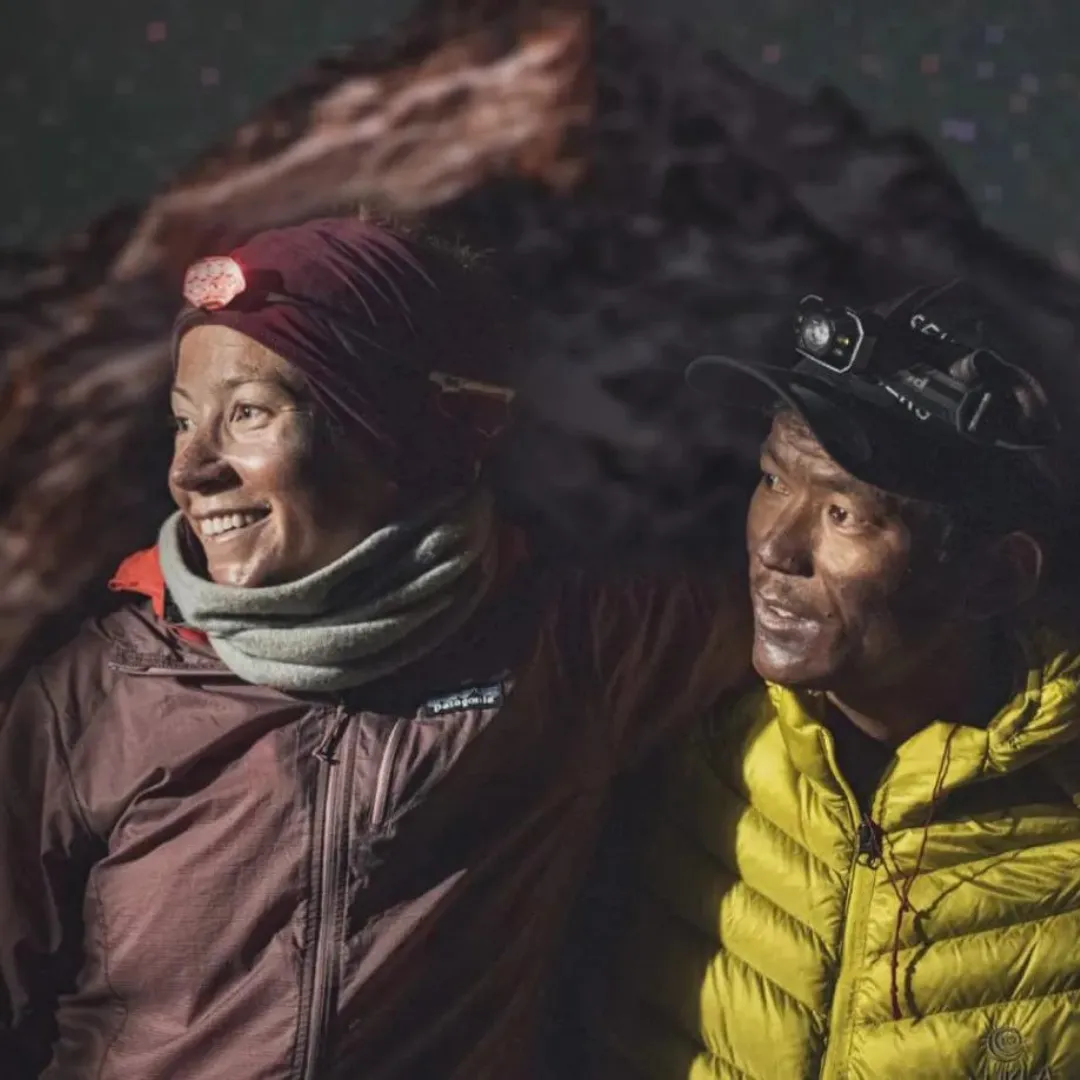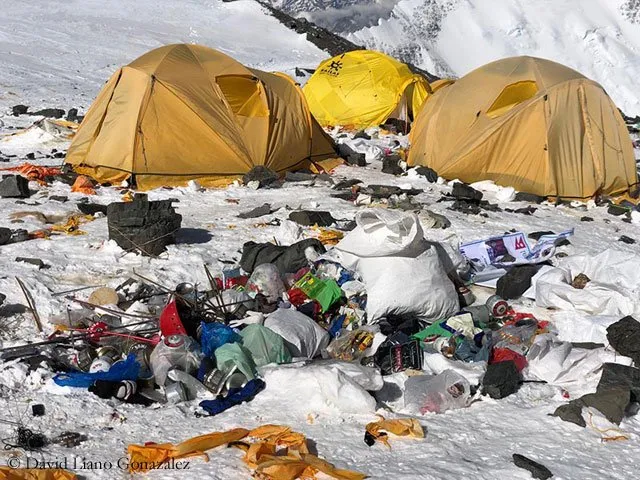The overall objective of the project is to clean up the high altitude mountains, starting with Mount Everest. And, at the same time educate for an attitude change.

Kristin Harila set, together with Tenjen Lama Sherpa, in July 2023, the world record in climbing all fourteen 8000 meter high mountains in only 92 days. Why? To prove to the world that a good team can do anything, no matter the gender or origin.
Kristin has, during her expeditions, climbed the 8000-peaks in total 28 times. She has seen how waste negatively impact nature and people in the mountains. She has, in memory of late Lama, decided to start the TENJEN-HARILA Cleanup Project. A project with an overall goal to make mountain tourism more sustainable and improve living conditions for the people who live off and work on the mountains.

There is too much waste in the mountains, and it is increasing every year.
Waste is piling up in the mountains. Living conditions for the people who live off and work on the mountains, deteriorates with every climbing season. Not to mention the enormous negative impact the waste has on wildlife and nature. In addition, the world’s impression of the Himalayas is that it is a hopeless waste bin, giving a bad image to Nepal and the region.
As the number of people wanting to climb the mountains increase, the problem intensifies. Kristin firmly believes that it is our shared responsibility to take action on how we climb these mountains.

A Dedicated Team
Instead of relying on climbers and Sherpas already present on the mountains, we intend to hire a dedicated team of skilled Sherpas, with the sole focus on cleaning up trash.
A Long Term Focus
Through education, communication, fees and sale of recycled items, we will have an organisation that will be capable of running effective cleanups every year.
Support From Local Stakeholders
We have buy-in and approval from the government and we are co-operating with the local trekking companies in the region.

The project intends to hire a highly trained, dedicated team, that will only focus on waste removal, not on guiding clients. In order to do this, we need to hire the best Sherpas in the region, the most professional and skilled ones. In order to do so, we need to make working terms attractive to them:
The waste-culture in the mountains needs to change, from within. Both workers and visitors need information and training in order to make this change, so that all people on the mountain understand their own responsibility to reduce their waste footprint.
High Altitude Waste Management Course
A mandatory course for everyone that is working on and visiting the mountain (online for clients, offline and localised for workers).
Basecamp Waste Information Tent
We want to set up a tent in basecamp where people can come learn about how they can take responsibility towards our common waste problem.
This project is aiming to create a self-sustained system after 5 years of operation.
The intended revenue sources after 5 years:
The Tenjen-Harila CleanUp Project will hold a strong PR plan, with the aim of reaching out to an international audience. A website, social media channels and press coverage are already being planned. There will also be made a book and a documentary.
The project aims to co-operate with research and development teams to continuously improve on methods, equipment and tools: